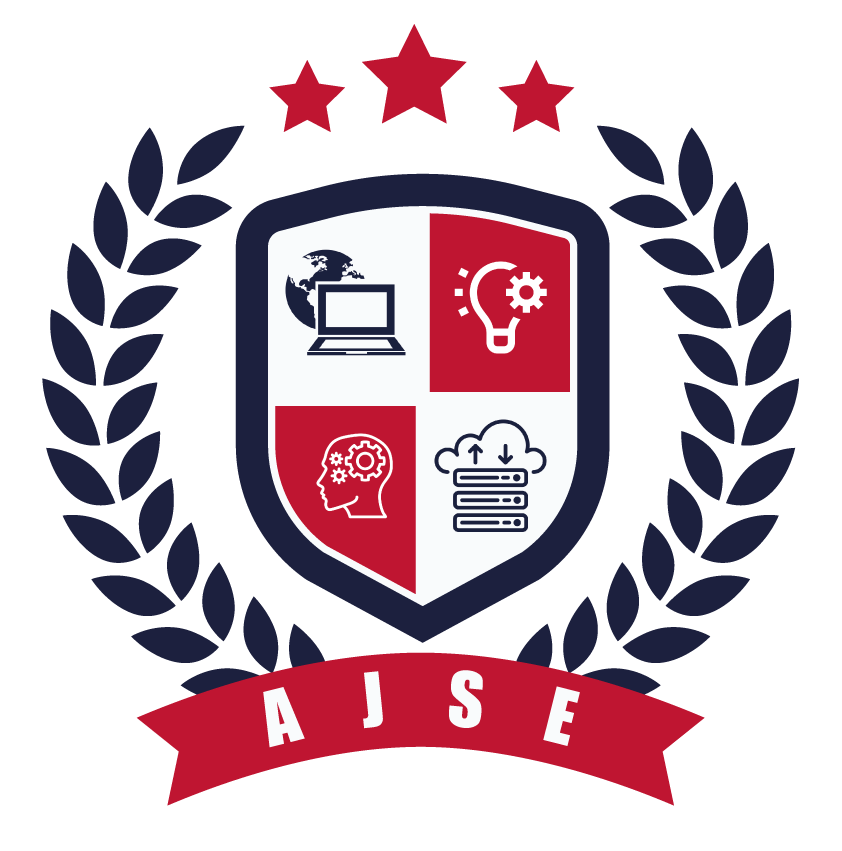Editorial Board
Editor-in-Chief
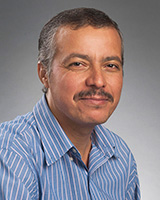
Dr. Izzat Alsmadi
Texas A&M, San Antonio, USA
Research Interest: Cyber Intelligence, Cyber Security, Software Engineering, Social Networks
Bio : Izzat Alsmadi is an Assistant Professor in the department of computing and cyber security at the Texas A&M, San Antonio.Read More… He has his master and PhD in Software Engineering from North Dakota State University in 2006 and 2008. He has more than 100 conference and journal publications. His research interests include: Cyber intelligence, Cyber security, Software security, software engineering, software testing, social networks and software defined networking. He is lead author, editor in several books including: Springer The NICE Cyber Security Framework Cyber Security Intelligence and Analytics, 2019, Practical Information Security: A Competency-Based Education Course, 2018, Information Fusion for Cyber-Security Analytics (Studies in Computational Intelligence), 2016. The author is also a member of The National Initiative for Cybersecurity Education (NICE) group, which meets frequently to discuss enhancements on cyber security education at the national level.
Editor-in-Chief(Emeritus)

Dr. Chuck Easttom
University of Dallas, USA & Georgetown University, USA
Research Interest: Cryptography, Cyber Warfare, Engineering Processes and Digital Forensics
Bio : Dr. Chuck Easttom is adjunct lecturer at Georgetown University and University of Dallas. Read More… He is the author of 31 books, including several on computer security, forensics, and cryptography. His books are used at over 60 universities. He has also authored scientific papers (over 70 so far) on digital forensics, machine learning/AI, cyber warfare, cryptography, bio-engineering, and applied mathematics. He is an inventor with 22 computer science patents. He holds a Doctor of Science (D.Sc.) in cyber security (dissertation topic: “A Comparative Study of Lattice Based Algorithms for Post Quantum Computing”) and a Ph.D. in Technology focused on nanotechnology (dissertation topic: “The Effects of Complexity on Carbon Nanotube Failures”), as well as three master's degrees (one in applied computer science, one in education, and one in systems engineering). He is currently working on third doctorate, a Ph.D. in computer science with emphasis on applied mathematics from the University of Portsmouth (dissertation topic “On the application of algebraic graph theory to network forensics”). He is a Senior Member of the IEEE and a Senior Member of the ACM as well as a member of IACR (International Association of Cryptological Research)a member of APS (American Physical Society), and INCOSE (International Council on Systems Engineering). He is also a Distinguished Speaker of the ACM (Association of Computing Machinery). and a Distinguished Visitor of the IEEE Computer Society, and a frequent speaker at conferences. He also currently holds 55 industry certifications (CISSP, CASP, CEH, etc.) He is a member of IEEE Software & Systems Engineering Standards Committee. He has worked on the DevOps 2675 IEEE standards group 2017 to 2019 and currently a member of the IEEE Engineering in Medicine and Biology Standards Committee. Standard for a Unified Terminology for Brain-Computer Interfaces P2731.
From the Editor’s Desk :
Science and engineering are rapidly developing. There are new innovations in nanotechnology, data mining, machine learning, quantum computing, and more. However, even traditional science and engineering topics such as chip design, systems modeling, and communications protocols are also experiencing rapid improvements. There are always new innovations. The cornerstone of science is publishing research. This allows other researchers to review your work. They can then build on that research, perhaps taking it into new directions the original author never imagined. As a scientist, one of my greatest thrills is seeing my own work cited by a paper going in a direction I never envisioned. This is one reason we insist on being open access. There are some wonderful scientific papers that are difficult to obtain. Often the journal articles are only available by subscription, which is sometimes prohibitively high. So many times, research can only be accessed if one is associated with a university whose library has access to that particular journal. However, there is a growing trend to academic journals that are open access.
We take open access one step farther. We do not charge a fee. We do this by everyone involved in this journal is working on a volunteer basis. The journal and its website are being hosted at no charge by a group of institutions and people who have also supported several engineering and scientific conferences. This allows us to not charge the reader nor charge the author. Now that will undoubtably lead to a high number of submissions. And volume is no substitute for quality. So, before we even announced the first issue, we assembled a highly qualified editorial/reviewer team to provide rigorous peer review for all papers submitted. We provide the biographies of all our editorial team on the journal website. Currently that team consists of 11 researchers who are themselves well published researchers, and they are professors representing 9 different universities. Their role is to be the gatekeepers, ensuring only quality research is published.
Associate Editor

Dr. Nabeeh Kandalaft
Grand Valley State University, USA
Research Interest: VLSI design tools Cadence, ADS Agilent, Labview, and VHDL
Bio : Dr. Nabeeh Kandalaft is the Assistant Professor at Grand Valley State University. Formerly he was the Adjunct Professor in the University of Windsor and holds the post of Research Assistant too.
Solid academic background in Analog/Digital/RF/Mixed-Signal IC design
- Extensive knowledge with VLSI design tools Cadence, ADS Agilent, Labview, and VHDL
- Architecture and transistor level design, and layout
- Simulation, testing and verification of both analog, mixed-signal circuits using industry best practices
- Characterization, Modeling, and Testing IR sensors with Black body radiation and IR lasers.
- Hands on” in an electronics lab environment and experience using basic and advanced test equipment
- Hands-on clean room experience and practical MEMS fabrication in clean room environment
- Extensive knowledge with MEMS related software’s HFSS & Q3Dextracto CoventorWare, Intellisuite
- Deep understanding in PLL, VCO, Time to digital convertors (TDC), operational amplifiers & ADC/DAC
- Knowledge of IC fabrication using various technologies and handling testing equipment for RF circuits
- Project management experience and effective crisis intervention.
Board Members
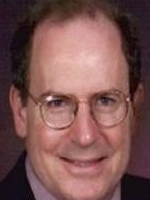
i) Dr. Phillip Bradford
University of-Connecticut-Stamford, USA
Research Interest: Algorithms, Computer security, IoT, Blockchain, Artificial intelligence
Bio : Dr. Bradford is a computer scientist with extensive experience in academia and industry. He has great reverence for quality research. Read More…He believes engineering and applied science is the main way to grow the economy by improving our living standards. Phil was a post-doctoral fellow at the Max-Planck-Institut für Informatik, he earned his PhD at Indiana University, an MS form the University of Kansas, and a BA from Rutgers University. He was on the faculty at Rutgers Business School and the University of Alabama School of Engineering. He has worked for General Electric, BlackRock, Reuters Analytics, founded a firm and both occasionally consults and works with a number of early stage firms. Currently, Phil is the director of the computer science program at the University of Connecticut, Stamford.
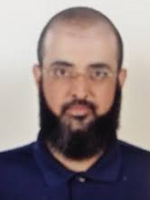
ii) Dr. Lo’ai Tawalbeh
Texas A&M University-San Antonio, USA
Research Interest: Privacy, Cyber security, applied cryptography,
symmetric and asymmetric encryption algorithm implementations, Mobile Cloud Computing, and CPS security.
Bio : Dr. Lo’ai Tawalbeh (IEEE SM) completed his PhD degree in Electrical & Computer Engineering from Oregon State University in 2004, and MSc in 2002 from the same university with GPA 4/4. Read More…Dr. Tawalbeh is currently an Associate professor at the department of Computing and Cyber Security at Texas A&M University-San Antonio. Before that he was a visiting researcher at University of California-Santa Barbra. Since 2005 he taught/developed more than 25 courses in different disciplines of computer engineering and science with focus on cyber security for the undergraduate/graduate programs at: NewYork Institute of Technology (NYIT), DePaul’s University, and Jordan University of Science and Technology. Dr. Tawalbeh won many research grants and awards with over than 2 Million USD. He has over 80 research publications in refereed international Journals and conferences. His research interests include Privacy, Cyber security, applied cryptography,symmetric and asymmetric encryption algorithm implementations, Mobile Cloud Computing, and CPS security.
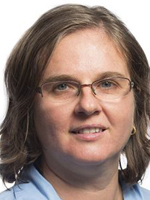
iii) Dr. Doina Bein
California State University, Fullerton, USA
Research Interest: Data sensor fusion, machine learning, automatic and dynamic decision making, data gathering in wireless sensor networks, communication scheduling in wireless networks, self-organizing ad hoc networks, wave algorithms, and graph embedding schemes.
Bio : She has an extensive publication record: 13 book chapters, 19 journal articles, and 68 conference papers.Read More… Four of her conference papers have received the best paper awards. She was awarded (as PI or co-PI) several research and teaching grants from AFOSR and NSF. She is the general vice-chair of an annual conference, International Conference on Information Technology: New Generations (ITNG), held in April in Las Vegas, NV. She is the faculty advisor of the ACM Women in Computing (ACM-W) local chapter, that organizes several outreach activities to inspire girl scouts in STEM education, and won several campus awards, Presidential Award from the Girl Scouts of America, and the 2018 Inspiring Programs in STEM Award from INSIGHT Into Diversity magazine.

iv) Dr. Hasan Yasar
Carnegie Mellon University, USA
Bio : Hasan Yasar is the Co-Director of XDevOps group in the SSD Division of the Software Engineering Institute, CMU. Hasan leads an engineering group on software development processes and methodologies, specifically on DevOps and development and cloud technologies, and big data problems while providing expertise and guidance to SEI’s clients.
His current areas of professional interests focus on:
• Secure Software Development including threat modeling, risk management framework and software assurance model
• Secure DevOps process, methodologies and implementation
• Software Development Methodologies (Agile, SAFe, DevOps)
• Cloud based application development, deployment and operations
• Software Architecture, Design, Develop and Management of large-scale enterprise system
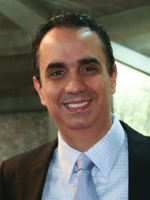
v) Dr. Moises Levy
Florida Atlantic University, USA
Research interest: Data centers and mission critical facilities
Bio : He has Ph.D. in Electrical Engineering with research focused on data center. M.S. in Electrical Engineering, B.S. in Electrical Engineering, and B.S. in Civil Engineering. Director and founding partner of engineering consulting companies.Read More… 25+ years of professional experience in consulting, planning, design, risk assessment, project management, commissioning and audits of engineering projects. Speaker at industry and academic conferences. Author of several publications for conferences, journals and magazines.
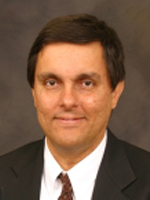
vi) Dr. Christian Trefftz
Grand Valley State University, USA
Research interest: Parallel Processing.
Bio : Christian Trefftz earned his undergrad degree in Computer Science at Universidad EAFIT in Medellín, Colombia, in 1984, an M.S. degree in Computer Science at Western Michigan University in 1989 and a Ph.D. in Computer Science at Michigan State University in 1994.
Publisher Details
Society for Makers, Artists, Researchers and Technologists (SMART)
6408 Elizabeth Ave SE, Auburn 98092, Washington, USA
Phone: 1-425-605-0775
Email: [email protected]
